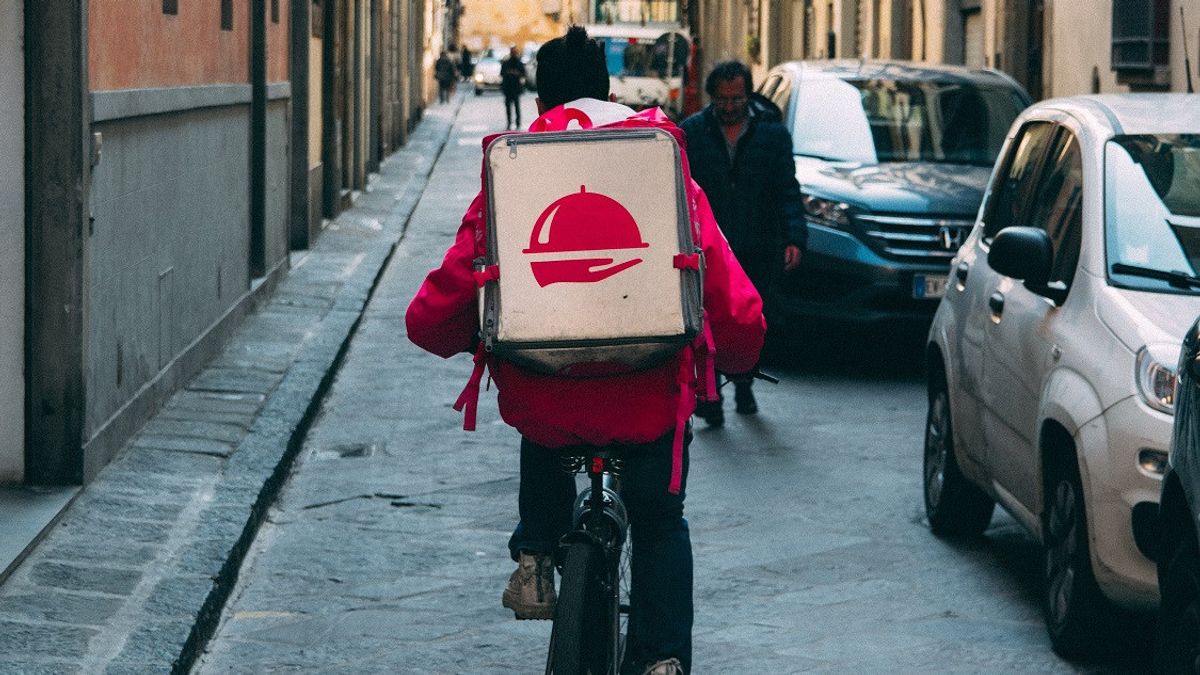JAKARTA - The Corona Virus pandemic, which has been going on for more than a year, has forced many things in everyday life to change. What has changed is the tradition of a homecoming for Chinese citizens during the Chinese New Year.
The annual tradition in which hundreds of millions of people in China travel back and forth to their hometowns, or just have a vacation during the Chinese New Year will certainly not be seen this year, due to travel restrictions and lockdowns.
The annual migration of Chinese workers is the largest in the world. The economic wheels that have been affected by the absence of this homecoming tradition have also been affected, such as the aviation business, train travel, the souvenir business.
However, in the midst of this situation, there are also some who experience significant growth, namely food delivery, and delivery services. Yes, this business is one that is experiencing growth, after the demand for food delivery increased rapidly.
The tradition of delivering and sharing food during Chinese New Year which is usually done in person now uses food delivery services. Yes, Chinese people rely on food delivery services to bridge the distance with families.
Beijing resident Wang Hui has received homemade dried beef, fried rabbit, hot tofu, and bacon that his mother bought online for him after he decided not to visit his Hometown southwest of Chongqing.

"In her eyes, I always lacked food. New Year's holidays are a very special time so she has to make sure I have the food I like, which is home food, ”said Wang, 27, who works for an internet company.
The not over yet the COVID-19 pandemic has made the Chinese Government prevent Chinese New Year 2572 holiday trips. However, through food delivery services, Chinese people can still celebrate Chinese New Year with their families. This step is also expected to restore the economic sector after the restaurant and hotel business was hit by the pandemic.
E-commerce and online sites benefited as food sales surged 40% during the shopping festival from January 20 to February 3, compared to the last Lunar New Year period", state television CCTV said.
Food and drink orders have surged ahead of this year's holidays, for example, e-commerce and retail sites such as JD.Com, Pinduoduo, and JD Daojia, with JD.com marking a spike in items between big cities and smaller territories.
"After a difficult year due to the pandemic, people will likely be willing to splurge on comfort food and gifts", said Imogen Page-Jarrett, an analyst with the Economist Intelligence Unit.
"Consumers will find it important to send gifts, including food, to their relatives, even though they cannot return in person", she added.
City workers send local cooking items and basic necessities such as rice and cooking oil to the family, while parents send hometown food to children in the city.
"Not coming home for the New Year, my parents sent items for the 'Spring Festival'", has become a trending topic on China's social media app Weibo.
Beijing has become a top destination for ordering food in remote areas. This year's favorites are West Laku Lotus Root Flour from Hangzhou City, Red Sausage from Harbin, hot-pot ingredients from Sichuan, to traditional Chaosan beef balls.
The English, Chinese, Japanese, Arabic, and French versions are automatically generated by the AI. So there may still be inaccuracies in translating, please always see Indonesian as our main language. (system supported by DigitalSiber.id)








